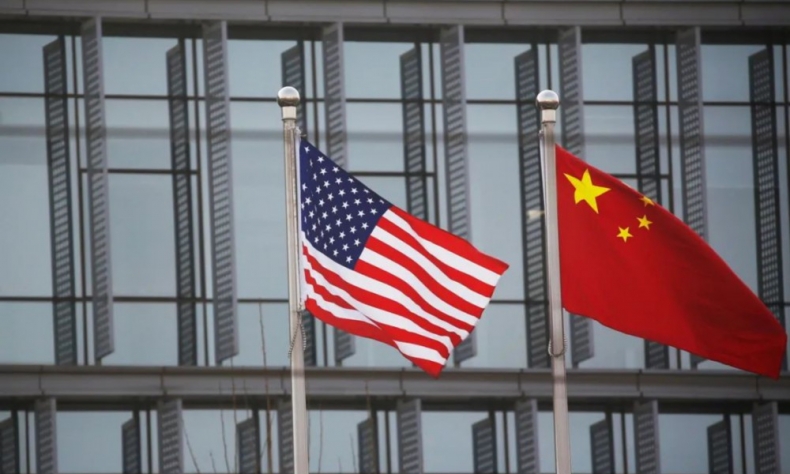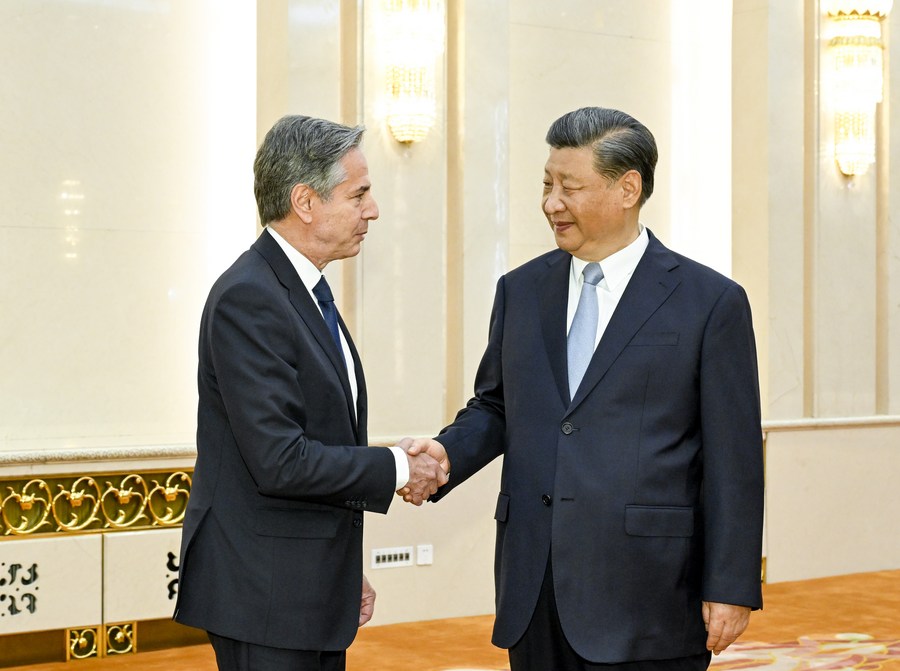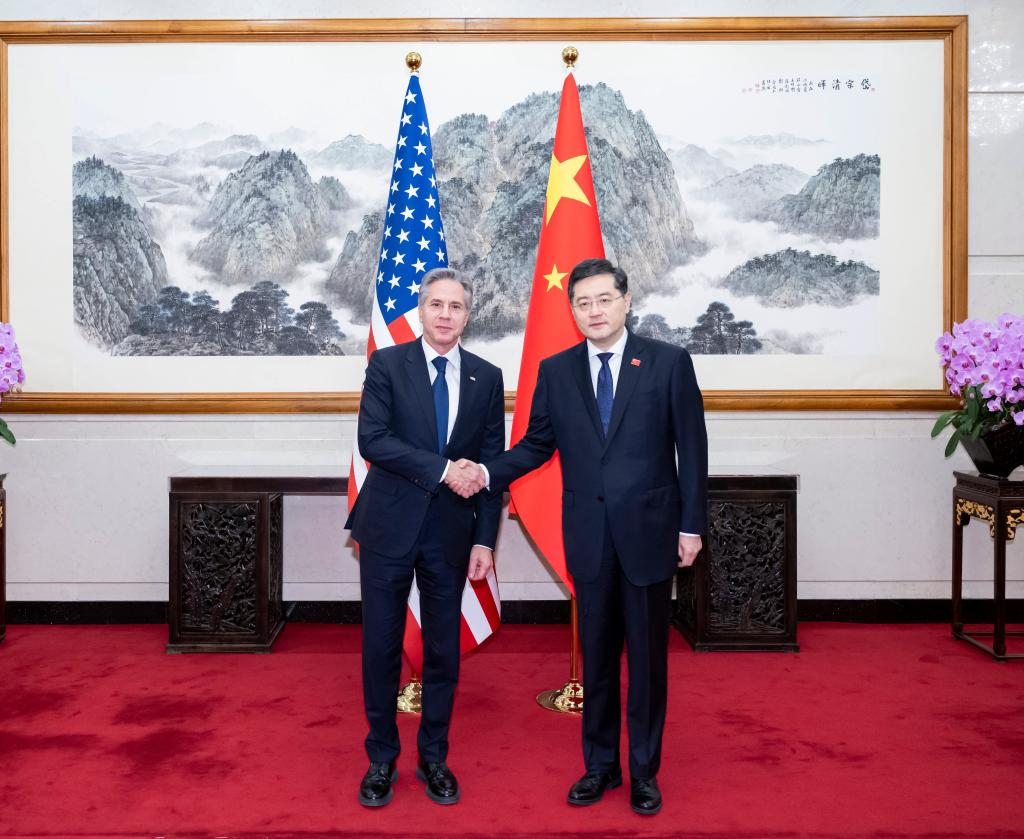Caution Remains over China-U.S. Ties After Blinken’s Visit to Beijing

Washington’s containment strategy was doomed to fail anyway. The sooner the U.S. reverses course, the better.
By taking note of China-U.S. bilateral relations in recent years, we could conclude that relations between the two most powerful nations in the world have reached disturbing new lows and that might lead to much worse yet to come. U.S. Secretary of State Antony Blinken had described ties between Beijing and Washington DC as “unstable” before embarking on his two-day trip to China’s capital on June 18-19.
Therefore, it’s time to reflect on the famous saying, “it’s always darkest before the dawn.” The quotation infers that when we are confronting our bleakest moments, we may soon enter a new phase of hope and positive momentum.
When people are hitting the lowest times in their lives, the rock bottom becomes a striking reality check for them. They become more motivated to take actions to recover or their lack of actions would result in a deeper demise for them.
And in this regards, low expectations were set for Blinken’s Beijing visit. Yet, some signs of hope had begun to emerge when China’s Foreign Minister Qin Gang was meeting with Blinken at the Diaoyutai State Guesthouse in Beijing on Sunday afternoon for over five and a half hours, followed with a working dinner.
They held talks that were best described as, “candid, substantive and constructive” according to media reports. Although Blinken and Qin did not reach agreements and consensus on all major issues of common concern between both sides, the fact that they were meeting face-to-face was a remarkable historic moment in itself. A sitting U.S. Secretary of State has not visited Beijing since 2018.
Wang Yi, a member of the Political Bureau of the Communist Party of China Central Committee and director of the Office of the Foreign Affairs Commission of the CPC Central Committee, also met with Blinken on Monday morning. In the afternoon, Chinese President Xi Jinping spoke with the U.S. Secretary of State at the Great Hall of the People in Beijing for about 35 minutes.

Talks are better than no talks
In retrospect Blinken’s visit to Beijing should not be deemed as a transformational moment in the history of China-U.S. relations, but even the smallest steps of progress are much preferred to deliberately stalled progress. Both China and the U.S. do not seek to wage war against each other.
The two great nations have long enjoyed prosperous bilateral trade and investment ties. China stands tall as the world’s largest manufacturer and exporter, while the U.S. has the world’s largest consumption market and global leading importer.
Washington sees China as a competitor but Chinese President calls for the U.S. to engage with China rather than de-couple from Asia’s biggest country.
According to news report by Xinhua, President Xi said, “China respects U.S. interests and does not seek to challenge or displace the U.S. In the same vein, the U.S. needs to respect China and must not hurt China’s legitimate rights and interests.”
He added, “Neither side should try to shape the other side by its own will, still less deprive the other side of its legitimate right to development.”
President Xi emphasized that China always hopes to see a sound and steady China-U.S. relationship and believes that the two major countries can overcome various difficulties and find the right way to get along based on mutual respect, peaceful coexistence and win-win cooperation, calling on the U.S. side to adopt a rational and pragmatic attitude and work with China in the same direction.
In other words, Xi had sought to remind Washington that the ball was in their court to improve relations with Beijing. Yes, it’s nice for Blinken to visit Beijing and speak directly with Chinese leaders, but Washington must follow up with actions to bring about better ties between the two countries, since “actions speak louder than words.”
And perhaps, China and the U.S. were facing tougher tensions since government officials from both sides were not directly communicating with each other in recent months. Blinken was scheduled to visit Beijing earlier this year, but canceled at the last minute. Amid the aftermath, Beijing and Washington relations had entered a deep chill.
Meanwhile, frosty bilateral ties between China and the U.S. were not sustainable. U.S. diplomats were pushing for a China containment strategy that was not winning them more friendships in the Asia-Pacific region. The ASEAN (Association of Southeast Asian Nations) member states were getting threats from Washington to reduce their trade and diplomatic ties with Beijing.
But many Southeast Asian nations maintain robust trade with the China and Washington’s demands sounded unreasonable to them. The U.S. was blundering big-time.

U.S. reversing course was inevitable
Apparently, Washington was trying to re-spark the Cold War all over again and discovering that few nations and regions were eager to join in. Additionally, the U.S. has acted too aggressively with its foreign policy agenda, while more nation states have started to push back.
The Chinese government has improved its relations with many nations in the Global South and Middle East regions.
Beijing has promoted the Belt & Road Initiative (BRI) to sign on to joint projects to build major infrastructure projects with participating member states.
The emerging economies have long struggled to build new highways, trading ports, airports and manufacturing hubs but they lacked sufficient capital to fund it. China was offering a helping hand by offering generous loans and subsidies, via the AIIB (Asian Infrastructure Investment Bank).
China was winning new friendships with more countries on account of the BRI while Washington was screaming, “debt-trap diplomacy.” The Biden administration thought they could play clever schemes by demanding more countries de-couple from China’s economy but that has obviously failed.
Hence, U.S. officials finally had a reality check and concluded that by trying to isolate Beijing on the world stage, they were actually alienating themselves.
Blinken’s visit to Beijing was more like a retreat than a victory lap for the U.S. Washington’s containment strategy was doomed to fail anyway. The sooner the U.S. reverses course, the better.
And we could soon see more positive announcements, such as Beijing and Washington likely greenlighting more direct flights between them and easing visa restrictions to encourage more people-to-people, academic and business exchanges.
The article reflects the author’s opinions, and not necessarily the views of China Focus.
 Facebook
Facebook
 Twitter
Twitter
 Linkedin
Linkedin
 Google +
Google +



